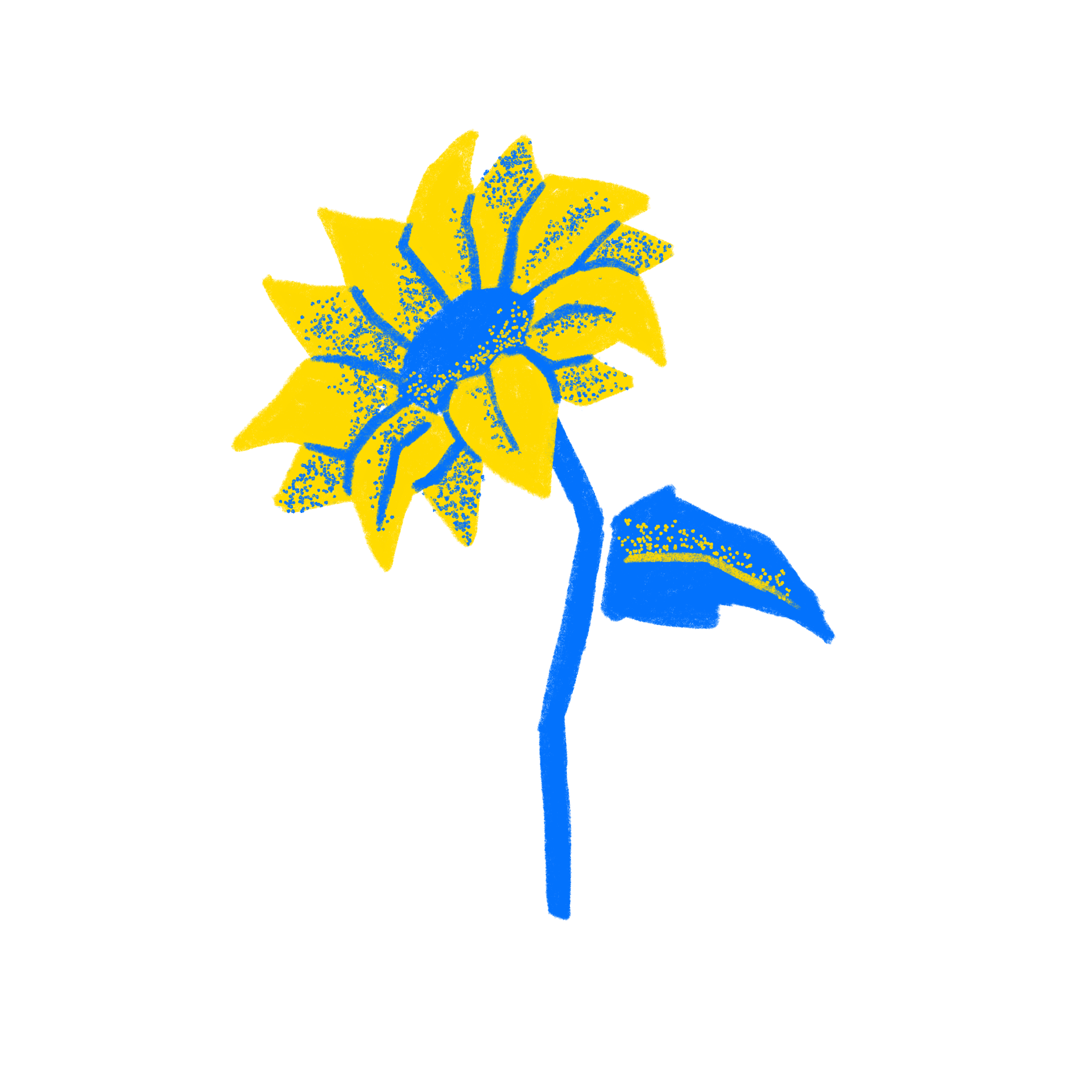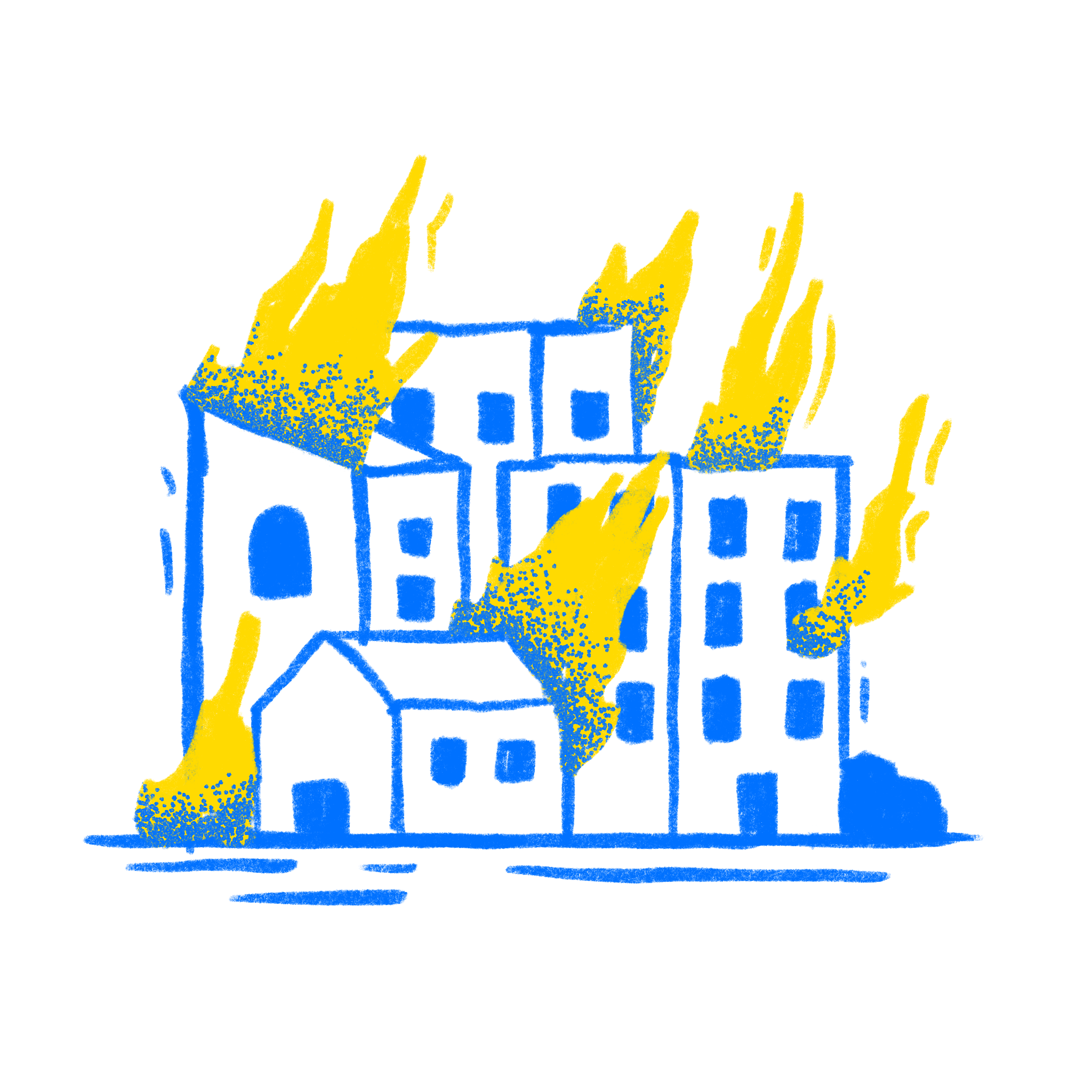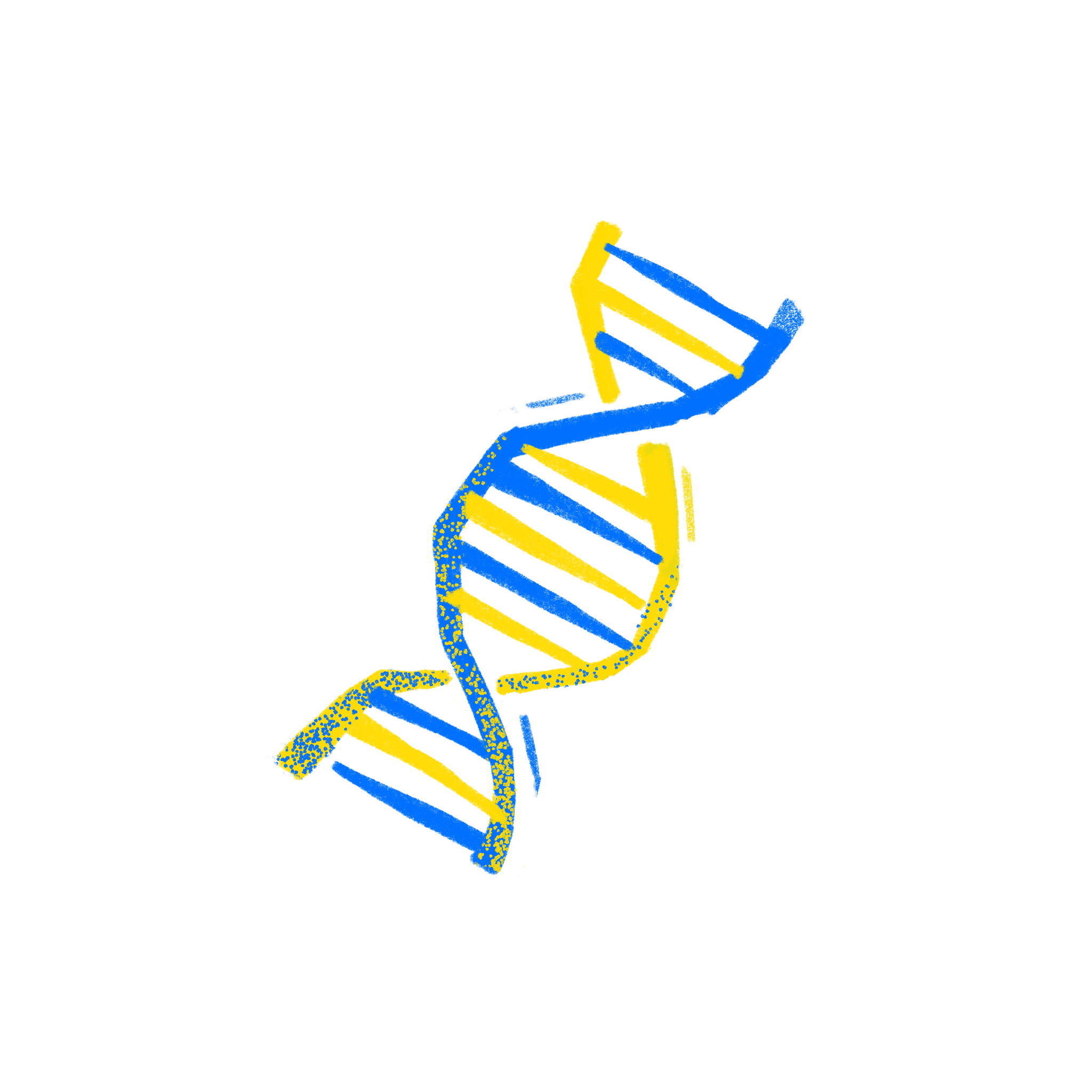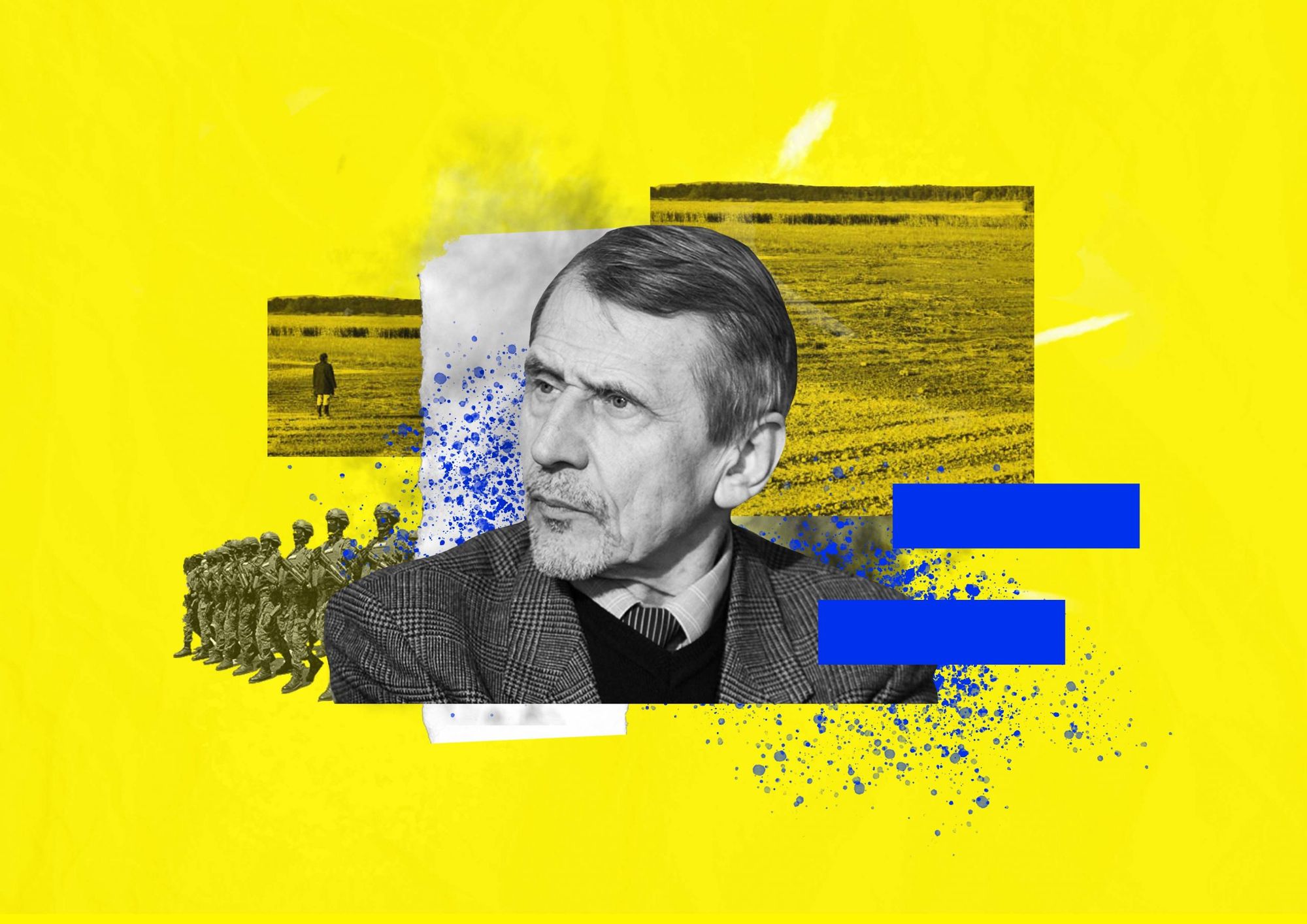We spoke with Professor Mykola Riabchuk, one of the most prominent experts on Ukrainian culture and public life, about changes in Ukrainian society, books, doomscrolling, historical chances, cursing, basic instincts, and of course, the war itself. The war interrupted his visiting lectureship in Paris, and he came to Warsaw for a few days to help his family flee. We had the chance to meet him there—an exclusive interview on Hype&Hyper.
The term doomscrolling has become recently popular; it means that one gets addicted to scrolling through bad news on the Internet. In the long term, this deepens depression. Do you also experience this?
Of course, but I would not say that I am depressed. I feel a sense of insecurity, but like most Ukrainians, I also convince myself that everything will be all right again one day. Polls show that more than 90 % of the people are confident of our victory. Another poll says that the vast majority of refugees want to return, if I remember correctly, 80 percent of them as soon as possible. Moreover, hundreds of thousands returned to Ukraine to fight. I believe the current situation demands a very idealistic attitude from people. We are not thinking about what is in the present, but we wonder what should be; this is astonishing. Despite all the enormous loss and pain, it seems there is no other choice; we must succeed. Either we win, or we are wiped off the map.

You already talked about the notion of „two Ukraines” long before the millennium. In a nutshell, there are two parallel Ukraines, not in a geographic sense, but that there is a post-colonial, post-Soviet Ukraine on the one hand and a Westernised on the other. How does this stand now?
In the nineties, I believed a bit idealistically that with the end of Soviet pressure, the Eastern, post-Soviet identity would eventually be overtaken by the other one, and a kind of „catching-up nationalization” would take place. I was naive because I did not consider the colonial mechanisms, and I did not see how deeply the Soviet past is embedded in us. Later, I refined my theory, and now I talk about Weberian ideal types. On the one hand, there is a Western identity and, on the other, a Soviet, post-Soviet, or, more precisely, a pan-Slavic one. It is essential to understand the latter because it is a misconception if we equate it with Russophilia. It is a broader notion, a concept of civilization in a sense. It incorporates our whole mythology, starting with the Kievan Rus’ as a shared cradle to the Russian, Belarussian, and Ukrainian communities. The Orthodox religion also plays a vital role, although the majority is not religious. However, it is crucial to emphasize that this face of Ukraine does not want to turn away from the West either; nobody is against European integration. NATO is a different question, regarding that there are doubts, not because it is bad, but because Ukraine did not want to provoke Russia. But Ukrainians always faced the West, even Yanukovych, who prepared the ground for the EU-Ukraine Association Agreement. It is a different story whether he changed his mind because of blackmailing or his stupidity was the reason. But there has always been some ambivalence in society. Influenced by Western soft power, Ukrainians wanted to join the attractive West very much. Still, simultaneously the Soviet traditions and the great Slavic myths also significantly impacted the population. So, it was pretty infantile; they wanted both at the same time. They failed to understand that combining these two separate worlds is impossible. Now, Ukrainians have become one state and one nation in a political sense. The issues above are now fading into the background; they lost their relevance. Survival is at stake now; when it comes to the slaughter of Ukrainians, to the extermination of the nation, everyone is united.
What will happen when the war is over? Can these old reflexes return?
No, there is no return. There was no return eight years ago either. The events in 2014 hit this ambivalence to a great extent. The downfall of the identity based on Slavic mythology already happened; we cannot say what has been left from it, if anything. This myth is over, and most importantly, a strong, unified Ukrainian political identity has emerged. I believe it was clever that Ukraine has been defined as a political project since its independence in the beginning.
Society has changed, but also the political elite. Where do the new players come from? The West is amazed at how competent the Ukrainian government is and how well they communicate.
Do not overpraise them. No ideal government exists, but it is also true that we do not criticize the government during a war, although there are definitely things to criticize. But I should admit that an unexpectedly well-performing political elite has emerged indeed. This is not a miracle nor the result of some particular historic logic; it is a coincidence that they appeared now. It is simple; during Euromaidan, there were great expectations followed by great disappointment since not everything turned out as we had hoped. Three years ago, there was an election with a very heated campaign, highlighting the previous corrupt elites’ weaknesses. Volodymyr Zelensky had a brilliant team of media experts, and he is also an excellent media figure. He was adept at winning votes from all sides, and he had supporters with all kinds of political views. Moreover, he never criticized Poroshenko for being pro-Western. He attacked him for corruption and bad performance, but he did not played the anti-Western or pro-Russian card as many politicians did before. It was a sea change in Ukrainian politics because both leading candidates had an unquestionable pro-Western attitude.

Recently, much has been written about Ukraine becoming a real civil society, while the exact opposite is happening in many neighboring countries. Citizens feel that they own the state and have responsibility for it. That is the reason why they fight so vigorously. What is your opinion on this?
It is not that surprising since, in Ukraine, civil society has always been more mature and better organized. No government could or dared to curb or suppress it. There were attempts but not to that extent as in Russia. The problem is different in Ukraine. The question is how we could transfer the grassroots citizens’ initiatives to the broader state level to build institutions and a state from them with the help of politics. It is great that there are informal initiatives and organizations, but the state and the institutional systems are still fragile.
So, society performs the functions of the state as well.
Yes, something like that. In difficult situations, it works well; there is no hierarchy, and people can improvise, organize things at the basic level and make decisions. But there are situations when order, organization, and a vertical structure are necessary. These are missing. Thus, there is a massive contrast between the strength of society and the weakness of the political elites.
Society and the political elite are rapidly changing now. Is there a chance that the typical Ukrainian pathologies will disappear, such as corruption and oligarchs? Or will everything come back once the war is over?
We always believe that the future will be better, and we must believe in this. Moreover, there has never been a better chance to get rid of these pathologies. The governing elite recognized that they have the opportunity to make history now. I hope they will not gamble this, and after the victory, they will not screw up everything in peacetime. We should hope that they want to serve the brand they are building.
All nations, at least in our region, have to go through a specific path to evolve into a modern nation, and the milestones along the way are also very similar. A revolution and fighting a war of independence are inevitable at least once. Ukrainians are fighting it right now, while Belarussians presently have less chance. Is it possible to skip a stage; can a nation jump two steps?
I often discuss this topic with my students. I agree with the theory that there is a similar path for all Central and Eastern European nations, but nothing is predetermined to that extent. I would say that the past defines a few possible pathways, and there are indeed certain stages that cannot be skipped. But within the path, there is a wide range of possibilities. The tracks can be widened and extended, but they can also be wasted or completely blocked. It is like humans’ genetic codes. Our genetic conditions are given, but it is up to us whether we make a lot from them or waste them. In this respect, Ukraine indeed has good chances, better than Belarus. Nonetheless, we should not completely write them off. Last year Belarussian showed the world that there is a strong society there that can and wants to fight. There are various reasons why they lost this time, but the most important was the „assistance” of the Russian big brother. If Russia had not helped, the ruling Belarussian elite would have shortly collapsed, and a part of it would have joined the protesters. At least, this is the usual pattern of Central and Eastern European revolutionary movements. This is how the communist systems collapsed, the ruling elites dissolved, and some switched to the more prospective side. So, as the middle class grows with modernization, people will want more freedom and more democracy. This is inevitable; eventually, it will happen. Of course, if Ukraine wins, it will happen very soon.

What would constitute a victory for Ukraine, by the way? What would be the greatest success, and what would be the worst failure?
It is easy to sketch out the worst scenario: if Putin fulfills his plan and conquers the whole country. He talks of nothing less than the „final solution to the Ukrainian question.”
So, he wants to reach the Polish border?
That is his plan. Putin clearly states in his Mein Kampf that all Ukrainians are Russians, and they must become entirely Russian. Anyone who disagrees with this is a Russophobe enemy who must be eliminated and exterminated. And that is what he is doing. He dreams that some Ukrainians can be brainwashed and converted into Russians, while the rest should be forced to flee the country or simply killed, as in Mariupol. I hope and believe that it is more likely that the situation will not get this tragic, and a ceasefire or an agreement will be reached. The optimistic scenario is that Ukraine will continue to fight effectively, and eventually, the prolonged war will induce Western societies to pressure their own political leadership.
Then even in the best scenario, Luhansk, Donetsk, and Crimea will not remain part of Ukraine…
Ukraine cannot accept this; we cannot make compromises regarding the territory of the country. There may be some temporary agreements on this question, but Ukraine will never recognize the formal secession of these territories. It is completely unrealistic at the present that any Ukrainian government would sign a treaty on this; the Ukrainian constitution does not allow it, and a referendum cannot be held during the war. I understand the fears, but there is a great opportunity to defeat the evil’s empire and build a new world; this is our message to the West. Otherwise, this rogue state will continue its operation, and nobody can tell where it will stop. The West must make a decision. You cannot wash your hands of the problem and say Ukrainians should deal with it. Putin is the product of the West; the West created him. The West supported him initially; it flirted with him and satisfied his needs. This is how this Frankenstein was born. The Western leaders have winked at his activities, and now we are expected to deal with it. It is not fair.

It seems like the messianism of the Poles 150 years ago. That the Christ of nations is fighting on the bulwark of Western civilization…
We know this doctrine, of course. It is great for survival, a beautiful, romantic, and idealistic idea that is a cure for the soul in times of war and occupation.
But if the country is defeated, Ukrainians will be very disappointed in Europe.
That would be a hard hit indeed. But I still have faith in European politicians’ common sense. We are not very fond of them, but we should deal with them; there is no other way. Their instincts have to work. We are in a paradoxical situation now; the European people are more pro-Ukrainian than their leaders. We hope that public opinion will eventually put pressure on the politicians.
But it might take a while…
That is why we must resist as long as possible. Putin’s Russia has changed its tactics, and now they use the old-school scorched earth strategy again. This puts us in a difficult situation. Moreover, besides Western people and governments, we should also address the Third World. Many of these countries still see Russia as an anti-colonial and anti-imperialist country despite being an imperialist and colonialist empire and not the liberator of nations.
The Ukrainian society has certainly gained that Ukraine has become a united and strong nation no matter the outcome. How will this traditionally multi-ethnic and multi-cultural nation treat Russians in Ukraine after the war?
This is not a concern. The public’s perception is that Ukraine is a political nation. We will not discriminate against any citizens.
So, can you rule out the possibility that the Russian minority will be looked at askance? For example, in the case of a Russian from Donetsk who is in Lviv.
There are already plenty of Russians living in Western Ukraine. I do not know of any discrimination cases. The issue is different regarding Russians from Russia; of course, there will be no connection between them and us for a long time. But the case of Russians in Ukraine is different. For instance, almost everyone speaks in Russian for pragmatic reasons in the entire Ukrainian army. The military terminology is Soviet, so Russian; there are hardly any Ukrainian equivalents. All our swear words are also Russian, and without them, it is impossible to fight. If you look at videos on the war, you will hear that this very vulgar language is based on the Russian language. Some Ukrainian words are mixed in, but Russian is the base.

You mentioned the term “Putin’s Russia.” What if we take Putin out of the equation? Is he the problem or Russia itself?
The problem is the same as it was with Nazi Germany. They have stupidized society in the exact same way, which now supports Putin in the exact same way as Germans supported the Führer. And I believe the cure will also be the same. Russians must experience their failure and immediately reckon with their past and identity. Because their imperial identity is based on false premises.
To what extent derives this attitude from Russian national identity? Is it part of the Russian soul?
Putin has only catalyzed these complexes. Russia has been unable to develop a national identity for a nation-state. It has always had an imperial consciousness; Russian identity has always been very fragile because its national core has not been defined. As the joke goes: „Who does Russia share a border with? With whomever, it wants to.” Unfortunately, Ukraine has always played a key role in Russia’s national mythology. When the Russian Empire was relatively lately born, in the 18th century, the history of the Kievan Rus’ was appropriated and incorporated into the Tsarist historiography. This was the time when the Russian expansion reached Kyiv and the Polish-Lithuanian Commonwealth. Ukrainian and Belarussian identity was downgraded to Russian regionalism; thus, incorporated into the Russian nation. According to Russian imperialism, there is no place for Ukrainians or Belarussians anymore; they are simply treated as Russians.
So, Putin is just a part of the problem?
Yes. This war has not started now; it began when the Ukrainian national identity was born, which is essentially hostile to Russian imperialism. And this cannot be reconciled. Ukraine is a body destroying the whole Russian national mythology from this perspective. Ukraine is jutting out from the mythology; thus, it must be cut out or assimilated. So, the current war has been predetermined, or in a sense, it is already going on in various forms for more than 100 years. It started when the Ukrainian national identity was born, the Bolshevik occupation of the Ukrainian state in 1918, and the Holodomor were part of it; and we are still fighting it today. The whole Russian nation is infected with this ideology; few Russians have been left unaffected. This identity is inculcated in them since childhood through their entire socialization. Furthermore, it is also part of the Russian culture. Pushkin, Bulgakov, who wrote Ukranophobic texts, and Brodsky, with his scandalous poem about Ukraine’s independence, are examples.
Can a second Yeltsin era come after Putin? And may a new Putin emerge after a few years again?
Yes, maybe this will happen. In a few years, the sanctions might disappear, resulting in the Russians’ eventually returning to their old, basic instincts and desires. But we cannot let this happen. Firstly, because of the memory of the martyrs; secondly, because Europe’s security can only be guaranteed this way.
Mykola Riabchuk is a Ukrainian public intellectual, journalist, political analyst, literary critic, translator, and writer. Riabchuk is known for his analytical articles and essays on Ukrainian politics, national identity, and analysis of Ukrainian history from a postcolonial perspective.
Interview by Gáspár Keresztes | Hype&Hyper | Warsaw
Cover: Réka Pisla | Hype&Hyper
Graphic: Roland Molnár | Hype&Hyper









